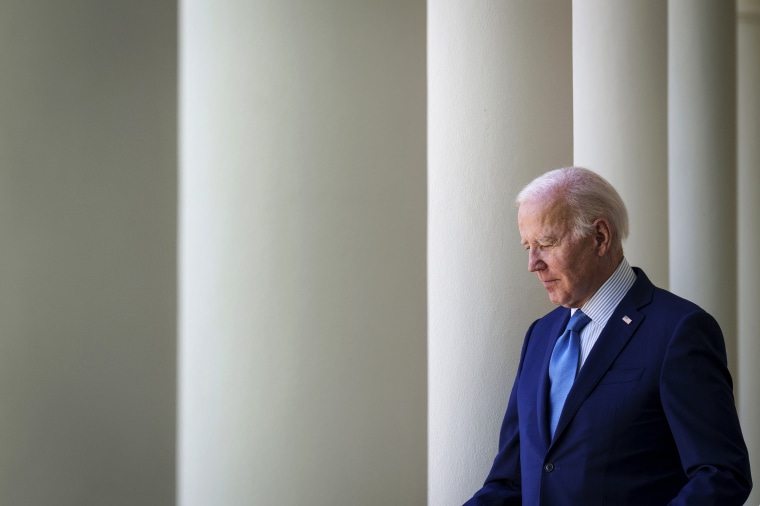WASHINGTON — The Supreme Court on Friday invalidated President Joe Biden’s student loan debt relief plan, meaning the long-delayed proposal intended to implement a campaign trail promise will not go into effect.
The justices, divided 6-3, ruled that the program was an unlawful exercise of presidential power because it had not been explicitly approved by Congress.
The plan, which would have allowed eligible borrowers to cancel up to $20,000 in debt and would have cost more than $400 billion, has been blocked since the 8th U.S. Circuit Court of Appeals issued a temporary hold in October.

About 43 million Americans would have been eligible to participate.
The student loan proposal is important politically to Biden, as tackling student loan debt was a key pledge he made on the campaign trail in 2020 to energize younger voters.
The ruling will immediately put pressure on the Biden administration to find an alternative avenue to forgive student debt that could potentially withstand legal challenge.
Advocates, as well as some Democrats in Congress, say the Education Department has broad power to forgive student loan debt under the 1965 Higher Education Act, a different law to the one at issue in the Supreme Court cases.
Separately, the student loan repayment process is set to begin again at the end of August after having been put on pause during the Covid-19 pandemic, although first payments will not be due until October.
The court considered two cases: one brought by six states, including Missouri, and the other brought by two people who hold student loan debt, Myra Brown and Alexander Taylor.
The challengers argued that the administration’s proposal — announced by Biden in August and originally scheduled to take effect last fall — violated the Constitution and federal law, partly because it circumvented Congress, which they said has the sole power to create laws related to student loan forgiveness.
In defending the plan, the Biden administration cited a 2003 law called the Higher Education Relief Opportunities for Students Act, or HEROES Act, which says the government can provide relief to recipients of student loans when there is a “national emergency,” allowing it to act to ensure people are not in “a worse position financially” as a result of the emergency.
The challengers said the language in the HEROES Act is not specific enough to authorize a proposal as broad as Biden’s plan.
Biden had proposed canceling student loan debt during the 2020 presidential election campaign.
The administration ultimately proposed forgiving up to $10,000 in debt for borrowers earning less than $125,000 a year (or couples who file taxes jointly and earn less than $250,000 annually). Pell Grant recipients, who are the majority of borrowers, would be eligible for $10,000 more in debt relief.
The administration closed the application process after the plan was blocked. Holders of student loan debt currently do not have to make payments as part of Covid relief measures that will remain in effect until after the Supreme Court issues its ruling.
The nonpartisan Congressional Budget Office estimated in September that Biden’s plan would cost $400 billion.
This story originally appeared on NBCNews.com.